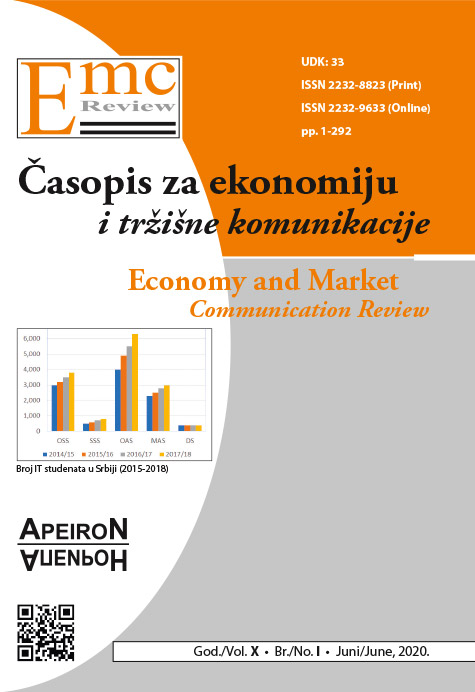The Causal Link Between Electricity Generation and Co2 Emissions: Toda and Yamamoto Approach
DOI:
https://doi.org/10.7251/EMC2001027MAbstract
The link between energy consumption and CO2 emissions has received a significant research attention in the last few decades in the case of Turkey. The authors in general agree on the positive link between these two macroeconomic terms. However, the link between electricity generation and CO2 emissions did not receive much attention what was the motivation to conduct this study. Thus, this paper aims to provide empirical evidence on the link between these two variables while controlling for the role of the population growth. The time-series data are collected at annual basis in the period between 1974 and 2016. Our results reveal a bidirectional causal link between electricity generation and population growth. These findings imply that population growth stimulates the electricity generation. In addition, electricity generation tends to stimulate the population growth. This is since some of the countries in the World have big problems with electricity supply. It influences negatively the manufacturing sector, educational sector as well as many other sectors. Moreover, a bidirectional link between population growth and CO2 emissions are recorded. More population is expected to demand more working place, and firms especially those in industry sector are known as significant energy gluttons. The empirical evidence of this paper can serve as an important insight for decision makers. At first, it suggests the necessity to think of the possibilities to develop renewable energy in Turkey. This is since Turkey has a great potential in the fields of renewable energy. In this light, Turkey may solve the problem of the great reliance on the imported energy. Moreover, the business climate should be more favorable for investors tending to support the projects in the fields of renewable energy. Apart from these, it is of great importance to make a necessary effort to increase the energy efficiency which will reduce the current energy consumption and CO2 emission consequently. At last, it would be necessary to educate both, the private and public sector, on the benefits of renewable energy.
